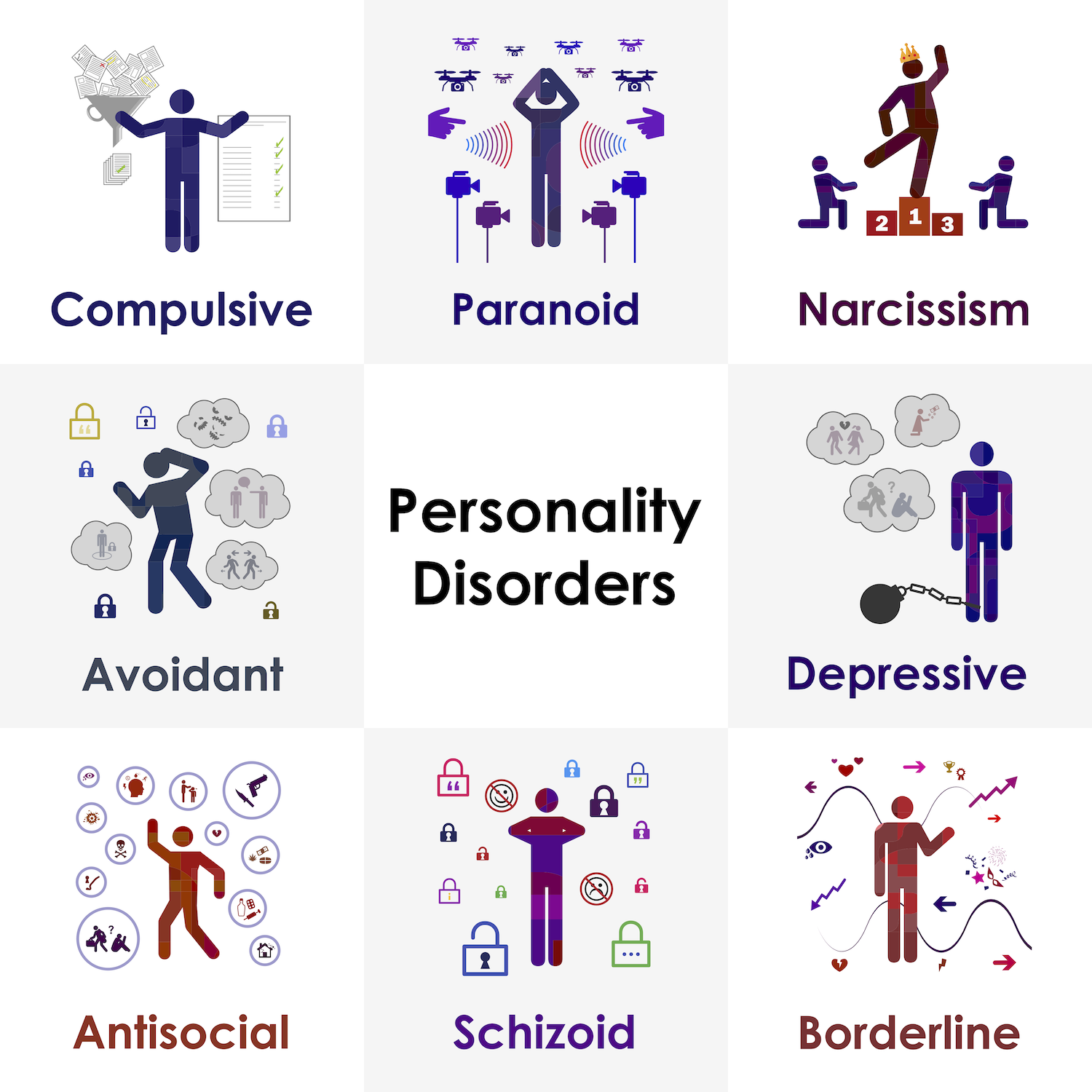Personality Disorders
Those who struggle with a personality disorder have great difficulty dealing with other people. They tend to be inflexible, rigid, and unable to adapt to the changes and demands of life. People with personality disorders tend to find it difficult to participate in social activities.
Some experts believe that traumatic events occurring in early childhood exert a powerful influence upon behavior later in life causing some personality disorders. Others indicate that people are genetically predisposed to personality disorders. In some cases, however, environmental factors may cause a person who is already genetically vulnerable to develop a personality disorder.
There are many different types of personality disorders, each with their own set of behaviors and symptoms. They usually fall into three different categories or clusters:
Cluster A: Odd or eccentric behavior
Cluster B: Dramatic, emotional or erratic behavior
Cluster C: Anxious fearful behavior
The following are the most common:
Cluster A:
Paranoid Personality Disorder
Schizotypal Personality Disorder
Cluster B:
Antisocial Personality Disorder
Borderline Personality Disorder
Cluster C:
Avoidant Personality Disorder
Dependent Personality Disorder
Treatment
The treatment that's best for you depends on your specific personality disorder, its severity, and your situation. At Sahara, a team approach is usually taken to make sure all of your psychiatric, emotional, medical and social needs are met. This approach includes medication and other modalities to meet your treatment goals.
Borderline Personality Disorder (BPD)
Talk therapy is a fundamental treatment approach for BPD. Your therapist may adapt the type of therapy to best meet your needs. The goals of therapy are to help you:
Focus on your ability to function
Learn to manage emotions that feel uncomfortable or unmanageable
Reduce your impulsiveness by helping you identify feelings rather than acting on them
Work on improving relationships by being aware of your feelings and those of others
Learn more about borderline personality disorder




